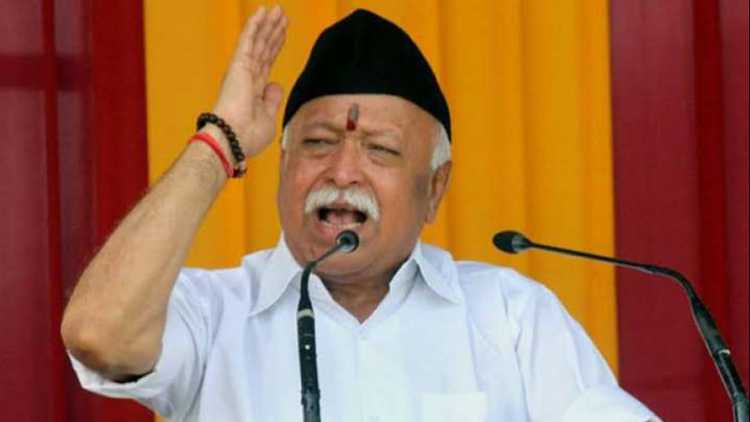
Saquib Salim
Faisal Devji, a professor of History at Oxford, writes in context of Indian history, “forgetting is also a crucial virtue, both in moral and political terms, because when paired with justice and forgiveness it is the only thing that stitches together societies divided by violence.”
On Sunday, Mohan Bhagwat, Rashtriya Swayamsevak Sangh (RSS) Supremo, at an event organized by Muslim Rashtriya Manch (MRM) at Ghaziabad spoke against the anti-Muslim sentiments prevalent in the society. Not only, he distanced himself from the anti-Muslim lynchings, comments and pogroms, Bhagwat went on to claim that anyone spewing venom against the Indian Muslims could not be a ‘Hindu’. During the address he tried to convince that his comments were not an ‘image makeover exercise’ rather RSS always believed that Indians, Hindus and Muslims, are one people and have equal rights over the country.
Though, the role of his organization is undeniable when it comes to the communalization over the last century but still his argument that at the ideological level ‘Hindutva’ does not, or should not, treat Muslims as alien people. Like many other ideologies, followers always do not represent the ideology of ‘Hindutva’. One of the earliest proponents of the idea of ‘Hindutva’, often considered its father, Veer Damodar Savarkar, writes,
“Their (of Hindus and Muslims) present relation was one not of rulers and ruled, foreigner and native, but simply that of brothers with the one difference between them of religion alone. For, they were both children of the soil of Hindustan. Their names were different, but they were all children of the same Mother; India therefore being the common mother of these two, they were brothers by blood.”
The claim that at an ideological plain ‘Hindutva’ believed that Hindus and Muslims are one people and belong equally to India can be easily corroborated with the writings of Savarkar.
Another important assertion of Bhagwat during the speech was that the talks around ‘Hindu-Muslim unity’ do not make any sense because both are one people. One can unite two different units, how will one unite something which in itself is a unit. People with an upbringing in colonial scholarship might question the wisdom.
Mohandas Karamchand Gandhi had always argued that the European ideas of nation, history, religion and community would invariably produce violence in an attempt to regain past glories or out of resentment at the present.
Saba Mahommod, famous anthropologist from University of California, had famously argued that the category of ‘religious minority’ is a ‘colonial’, or West European, construct in order to dictate geopolitics in its own terms. Post-World War I, the West European powers defined nation states as the geographical entities with people sharing the same culture and history. Any competing culture would be seen as a threat to the very nation state and had to be assimilated, or annihilated as Hitler tried. A membership to ‘minority community’, while on one hand guarantees citizenship to a state where the ‘community’ is being defined, on the other hand it threatens the existence of a homogenous state and others the ‘minority’ from the ‘majority’. In the name of protection of ‘minority rights’ what a modern nation state does is to sanction the difference between a ‘minority’ from the ‘national majority’, thus creating tensions at different levels of the social and political set-up.
Hannah Arendt, another famous political philosopher, also argues that religious minorities have existed since forever but the category was defined in the twentieth century to solve the problems in defining a nation state. The ‘minority’ category, when accepted, also confirms the belief that people of a certain national origin are one and other people in order to enjoy citizenship will need ‘extraordinary rights.’
The idea of ‘minority’ is a colonial construct and no freedom from colonisation is complete without rejecting such ideas. In a country, by creating such categories we acknowledge the difference in citizenship.
Coming back to the speech made by Bhagwat, I welcome his statement as a positive but small step in the right direction. For reasons outside the scope of a short essay and known to the most, the distrust between the Indian Muslims and RSS is quite deep. Indian Muslims would like to see some concrete action in building this trust.
As Ali Sardar Jafri says:
guftugū band na ho
baat se baat chale
sub.h tak shām-e-mulāqāt chale
ham pe hañstī huī ye tāroñ bharī raat chale
(Dialogue should not cease
Conversations should flow
Meeting of evening should end at the dawn
Stars at the night should smile at us)
(Saquib Salim is a Historian and a writer)
